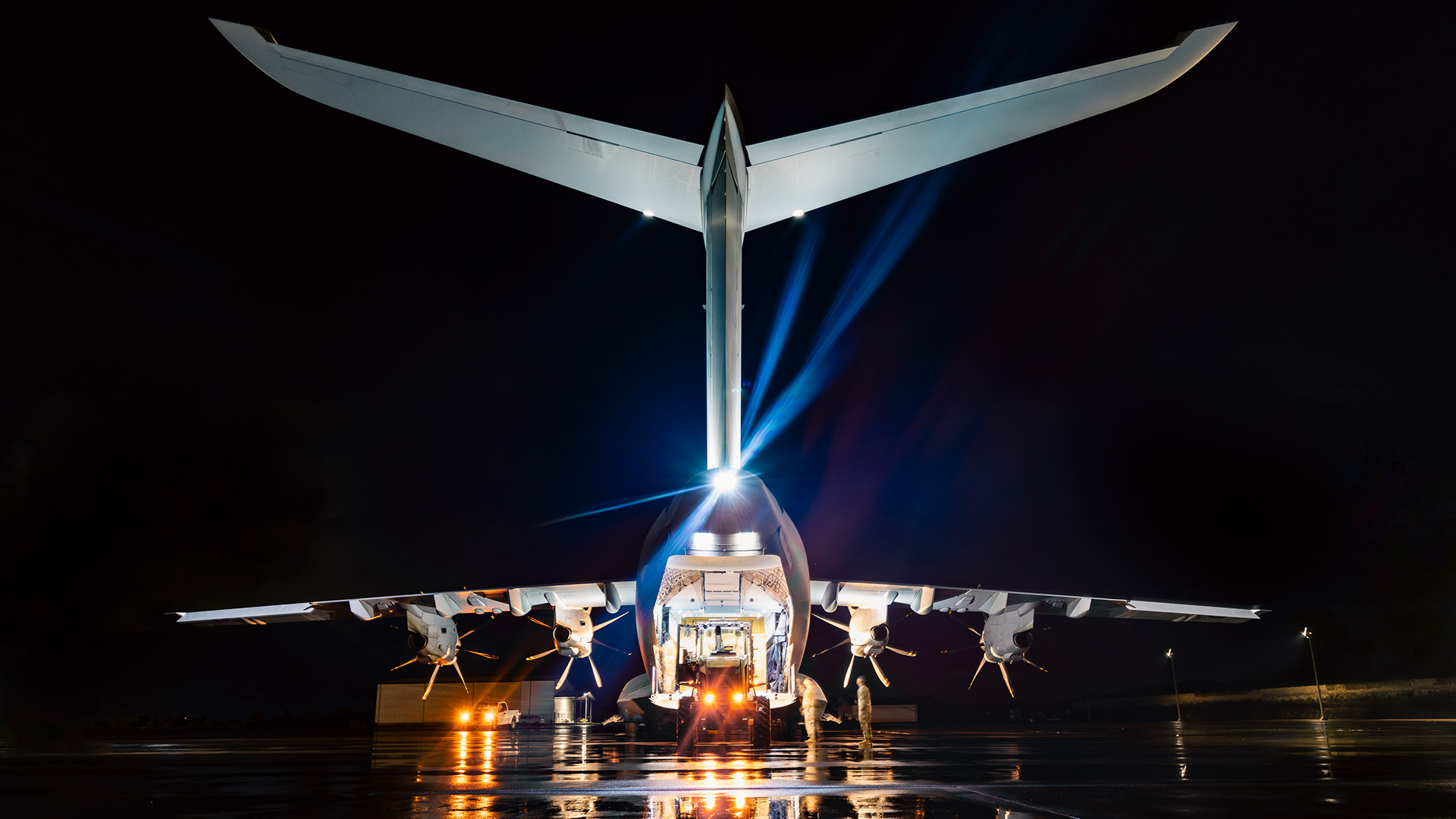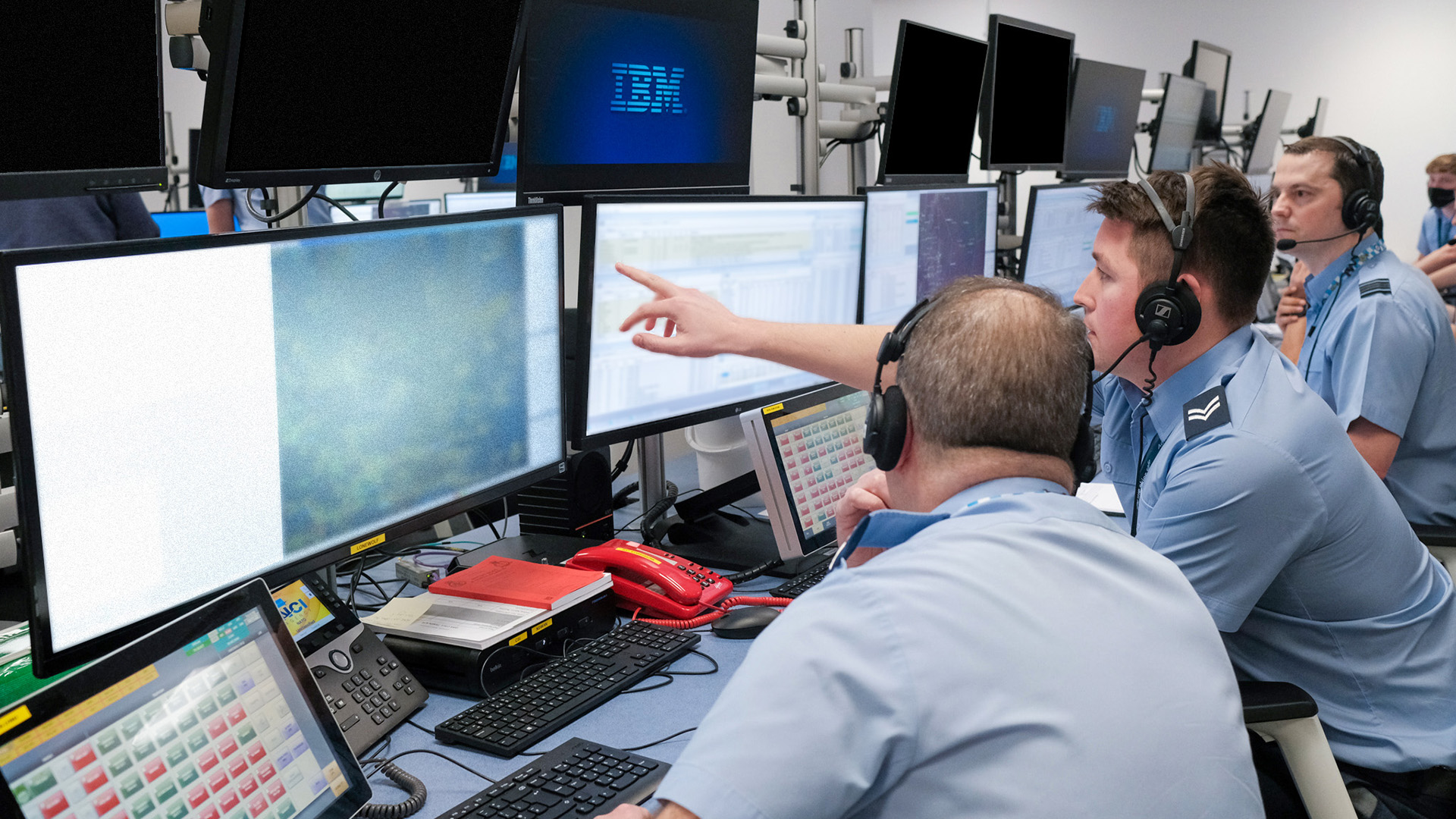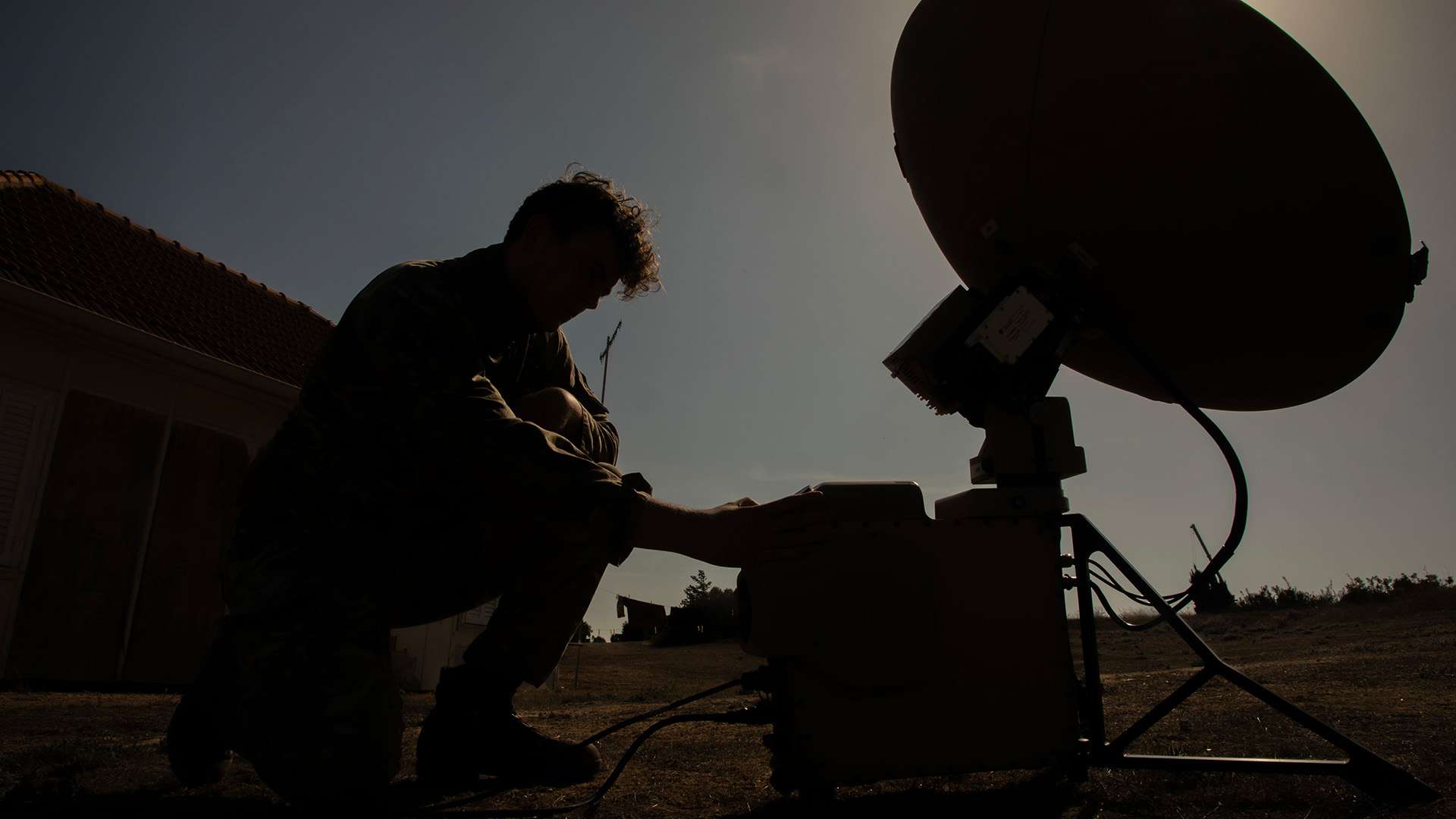
Global Enablement: RAF proves it's not all about Typhoons and the Red Arrows

The RAF's six Global Enablement forces were last seen undergoing training to examine their capabilities in the recent Exercise Auxilium Fort - but many people won't have heard of them and fewer still will understand their role.
The Global Enablement forces are made up of 8,000 personnel, which includes support specialists such as engineers, logisticians, force protection personnel, air security, communications and medical teams.
Auxilium Fort looked at ensuring that personnel could facilitate the rapid deployment of airpower.
The RAF is commonly portrayed as RAF Typhoons soaring through the skies and the Red Arrows wowing crowds while leaving their iconic red, white and blue smoke trails behind their Hawk T1 jets.
On the other hand, RAF Global Enablement is composed of personnel who work in several different roles, making dangerous operations possible.
BFBS Forces News has looked into what roles make up RAF Global Enablement.
Logistics
As the name suggests, the RAF needs to be well-organised to get anywhere in the world at short notice, and that is where the RAF logisticians come in.
The logisticians must move supplies, equipment and personnel by land, air and sea.
These personnel help to support deployment, exercises and operations by providing timely and appropriate resources.
Alongside these tasks, they also need to manage the fuel for the aircraft, munitions and overseas storage, meaning they are crucial for the completion of any successful operation.

Medical
Across all three services, medical personnel keep soldiers, sailors and aircrew fit and healthy.
In the RAF Global Enablement forces, medical personnel such as medics, nurses and doctors give critical care in both combat and humanitarian contexts.
Their specialisms vary from frontline trauma intervention to preventive medicine during deployments and emergency response disaster scenarios.
These medical teams also deliver training in first aid and survival skills.
Digital
As the British military explores the increased use of digital and AI capabilities on the battlefield and in other spheres, secure and reliable communications are important for any worldwide operations.
Communications and Information Systems (CIS) officers, cyber security professionals and IT specialists create and protect the networks that link aircraft, ground teams and command structures.
They facilitate the coordination of missions and the safe transmission of intelligence, and provide a strong defence against cyber threats.
Intelligence professionals gather, collate and interpret information globally.
Their research equips commanders and crews with the information they need to make decisions, whether in threat assessment, humanitarian support or operational planning.
Air traffic controllers also count as a digital role.
These personnel direct every RAF flight from take off to landing, organising the movement of both military and civilian aircraft in challenging environments.
Without the air traffic controllers, operations would not be able to get off the ground - quite literally.

Food, accommodation and welfare
Beyond the medics making sure personnel can recover from any injuries and any ill health, chefs, facility managers and welfare officers ensure that personnel are comfortable, sufficiently fed and supported mentally in their risky roles, irrespective of their location.
These teams promote high morale and wellbeing, which are vital for a mission's success.
Police
The RAF Police is responsible for the policing and security of the Royal Air Force, including its capabilities, information and people.
Members of the RAF Police are focused on defeating terrorism, espionage, subversion, sabotage and organised crime.
A recent report revealed that hostile attacks against the UK are said to be increasing in speed, scale and intensity, with the Ministry of Defence stating that it stopped 90,000 attacks over the last two years.
The Defence Select Committee highlighted that hostile threats are bringing war closer to every home in the country.
Ground Defence
The Combat Readiness Force is the ground fighting force of the RAF. It fights to defend the RAF and enable Air and Space Operations wherever required.
The Combat Readiness Force is responsible for Airfield Defence, Air Force Protection Command and Control, Tactical Air Control, Counter Uncrewed Aerial Systems (C-UAS), the conceptual and experimental development of Air Force Protection, and high-threat pre-deployment training for all members of the RAF.
Miscellaneous parts
There are also the RAF bands, adding a tune and a performance to raise morale, while serving as global ambassadors.
The Mountain Rescue Services, drivers, movers and ground engineers also contribute to the RAF enablement.
RAF Global Enablement in action
The RAF has sent 600 personnel to support Carrier Strike Group 25, otherwise known as Operation Highmast, to make sure CSG25 runs smoothly as it meanders around the globe.
Away from CSG25, the RAF has recently deployed to the ongoing Exercise Talisman Sabre in Australia, where personnel must integrate and operate alongside allied forces, providing valuable experience for ground crews, logisticians and support staff in high-intensity, simulated combat operations.
The RAF also sends support elements to Eastern Europe to aid Nato's Baltic Air Policing mission. Those involved include intelligence analysts, CIS specialists, logisticians and medical personnel.
If there is a disaster anywhere around the world, such as a hurricane in the Caribbean or an earthquake, the RAF can fly in critical aid.
These operations depend on coordinated action across the entire RAF workforce, from support services to logistics and medical teams.









